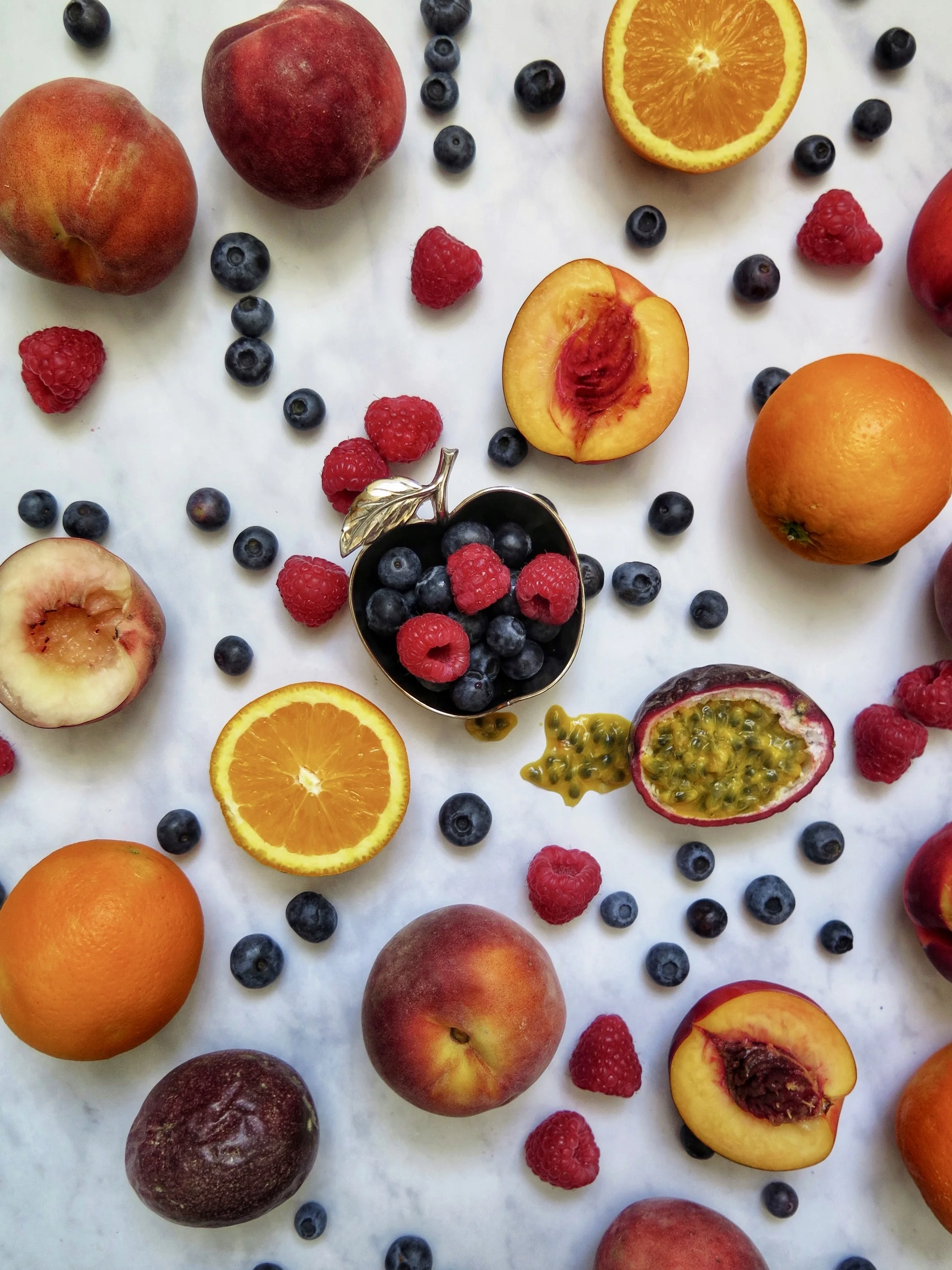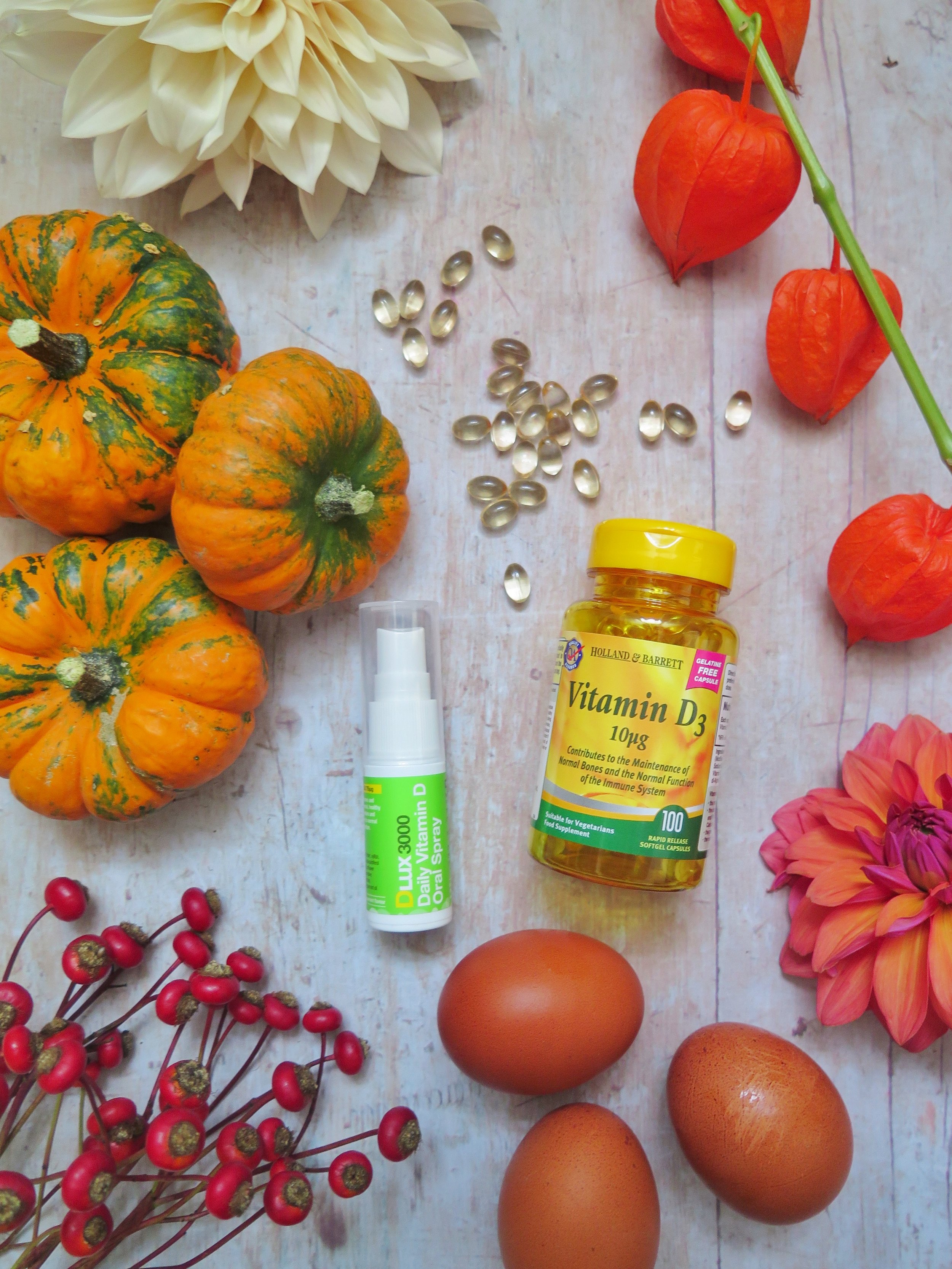Fruit vs Sugar
With experts suggesting we should all be consuming more like 10 portions of fruit and vegetables a day, it’s tempting to look for easy ways to up your intake and fruit juices and smoothies can seem an obvious choice to get an extra portion into the day. However, evidence is that this may in fact not be such a good idea. I think most people are now aware that we need to watch our sugar intake and there have been some confusing articles in the press over the last year which have led some people to think avoiding fruit is actually necessary in order limit sugar consumption. Hopefully this blog post will help to sort the fact from the fiction!
Firstly yes, we do all need to watch our sugar intake. The NHS recommends that adults should consume no more than 30g of “free sugars” per day. So what is a free sugar? A free sugar is any sugar which is added to food and drink, as well as honey; syrups; and the sugar which is released from fruit cells when fruit is made into a juice.
Sugar in fruit is called fructose. The fructose inside whole fruit is held within the cells of the fruit and is therefore not “free”. The addition of fibre in the fruit slows down the way our bodies process the fructose compared with “free sugar” and so it does not cause the same blood sugar spike as a glass of fruit juice will. Because of this, the fructose in whole fruit does not count towards your 30g maximum of free sugar per day. Which means you can stop counting and not worry about eating plenty of whole fruit!
It is also much easier to consume more fruit and therefore more fruit sugar (fructose) with a juice than with the whole fruit, largely because the fibre is removed during juicing and it is the fibre which fills us up. For example, to make a glass of orange juice you would need to juice approximately 4 oranges. It’s very quick and easy to drink a glass of orange juice, but try to sit down and eat 4 oranges back to back and that’s quite a challenge for most people!
There is also certainly a link between intake of fruit juices with added sweetener and and increased risk of type 2 diabetes*. Most fruit juice is sweet enough on its own without the need for added sweetener so the definite advice is to avoid those juices with added sweetener to lower your risk of type 2 diabetes.
If you are going to choose a juice then look for one without added sweetener, with as much fibre as possible, and don’t exceed the recommended about of a small 150mls glass per day. Drinking more than this will not count as anything more than one of your fruit portions for the day and will just cause you to drink a large amount of calories.
It is probably better for you to drink a smoothie than a juice as these have a much higher fibre intake and there is some evidence that blending the fruit does not create as much free sugar as in a juice. The jury is still out on this one however if you really struggle with eating whole fruit it probably is a better option and making your own with fresh fruit is simple and really delicious. Why not consider adding cucumber, kale or watercress rather than it being 100% fruit and therefore limiting your fructose intake?
Whole fruit can be eaten tinned or dried as well, but try to look for tinned fruit in coconut water or fruit juice rather than syrup, and for dried fruit be careful to limit your intake, as like fruit juice they can be very deceptive and easy to exceed your calorie intake unless you monitor the portion sizes.
I really hope this helps to debunk some of the myths around fruit consumption. The message is we should all probably eat more fruit, but avoid fruit juice apart from an occasional treat!
*Intake of fruit juice and incidence of type 2 diabetes: a systematic review and meta-analysis. Xi et al. Public Library of Science March 2014




